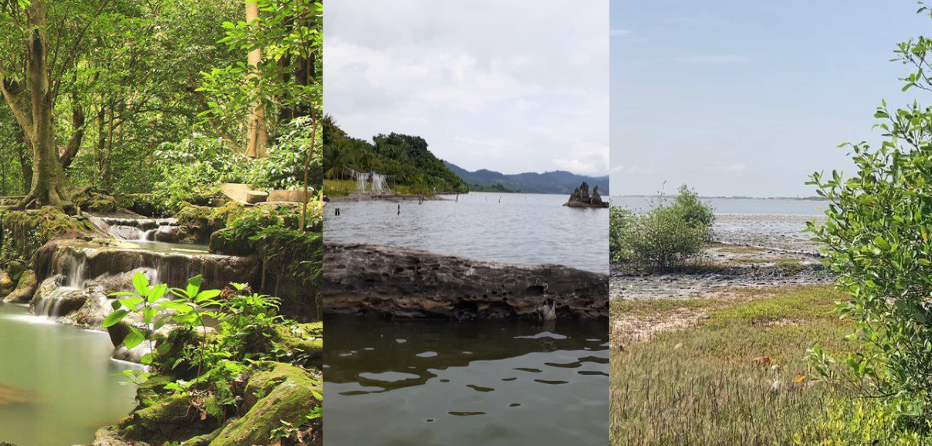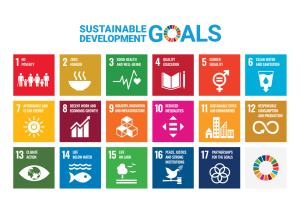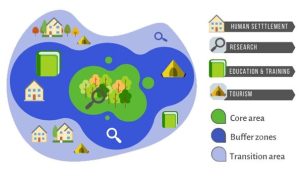- Login to ASPnet | Ghana Commission for UNESCO | Government Agency Responsible for the coordination of Ghana's contributions to and presence at UNESCO
INTERNATIONAL DAY FOR BIOSPHERE RESERVES

WE CELEBRATE THE FIRST INTERNATIONAL DAY FOR BIOSPHERE RESERVES
It was decided in November 2021 to proclaim a day in recognition of the contribution of Biosphere Reserves to conservation and sustainable development. Now, on the 3rd of November 2022, we are celebrating the International Day for Biosphere Reserves for the first time worldwide. This day in honour of the Biosphere Reserves is also hereby concluding the 50th anniversary of the UNESCO Man and the Biosphere (MAB) programme. In 1971 the MAB programme was launched by UNESCO. It is one of the oldest intergovernmental scientific programmes that celebrated its 50th anniversary in 2021 and 2022.
The MAB programme was implemented to improve the coexistence of people and their environments based on scientific research. It combines the natural and social sciences with a view to improving human livelihoods and safeguarding ecosystems, specifically in the face of climate change. In support of this goal, the Biosphere Reserves were created. The World Network of Biosphere Reserves is growing and currently counts 738 sites in 134 countries, including 22 transboundary sites.
Biosphere Reserves serve as laboratories for scientists to investigate the concrete effects of human actions and natural activities on the environment. By analysing the dynamics between nature and human action, relationships and dependencies between ecological and socio-economic conditions can be drawn. Biosphere Reserves are ‘learning places for sustainable development’ and are a model for attaining the Sustainable Development Goals (SDG):

Biosphere Reserves have three major functions, which are: conservation of biodiversity and cultural diversity; economic development that is socio-culturally and environmentally sustainable; logistic support, underpinning development through research, monitoring, education and training. Those goals should be targeted by involving the local communities that live around the Biosphere Reserves to assure sustainable change. The figure below shows the makeup of Biosphere Reserves.

In general, the Biosphere Reserves consist of three zones:
- The core area is the heart of the Biosphere Reserve. There can be multiple core areas. This zone is highly protected against human interference that would negatively compromise the core. Permitted activity in the core area is scientific research that contributes to the conservation of landscapes, ecosystems, species and genetic variation.
- The buffer zone surrounds the core area(s), and is used for activities compatible with sound ecological practices that can reinforce scientific research, monitoring, training and education. Local authorities are responsible that all activities in the buffer zone like tourism do not have an adverse effect on the core area.
- The transition area is the outer part of the Biosphere Reserve where communities foster socio-culturally and ecologically sustainable economic and human activities. Human settlements are found here.
There are three Biosphere Reserves in Ghana which are enlisted on the World Network of Biosphere Reserves: Bia Conservation Area and UNESCO Biosphere Reserve enlisted in 1983, Songor Ramsar and UNESCO Biosphere Reserve enlisted in 2011 and Lake Bosomtwe Biosphere Reserve enlisted in 2016.
Ghana’s MAB National Committee is hosted by the Environmental Protection Agency (EPA) and is currently composed of 28 members representing government regulatory and research institutions, universities and non-Governmental organisations.
The International Day for Biosphere Reserves should be a reminder on the sustainable development approach to conservation of ecosystems. The Biosphere Reserves are an example of good practice towards the sustainability goals.
